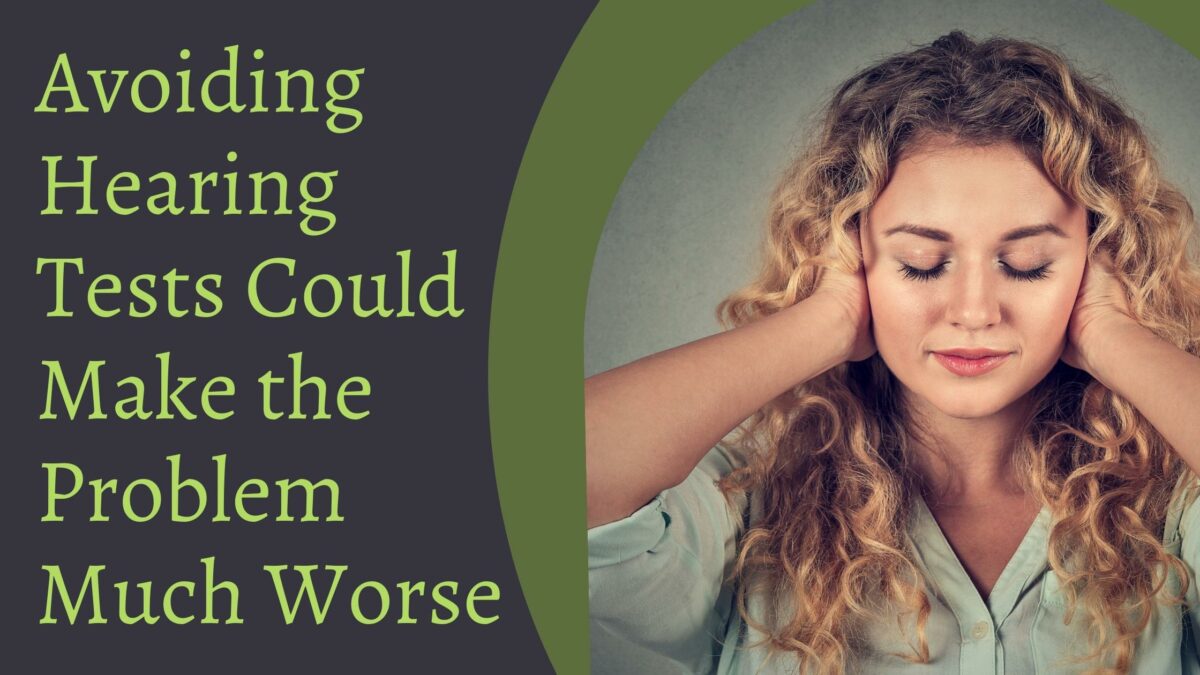People put off getting a hearing test for many reasons. When you first notice that hearing loss is becoming a problem, you might want to deny it is true. Rather than acknowledging that hearing loss is part of your life and experience, you might shift the blame to other causes. Perhaps the person you’re talking to is just too quiet, or maybe the background noise was too loud. These excuses and attempts at shifting the blame only last so long.
At the other end of this process of denial, most people have to admit to themselves that hearing loss is an issue, yet some continue to put off getting the test. They might think that hearing loss is an admission of being “old,” or they might tell themselves that hearing aids don’t do any good. These excuses are just two among a myriad of excuses that allow people to postpone getting the help they need. If you have someone in your life who is putting off getting a hearing test, it is important to know that this denial and avoidance can actually make the problem much worse. In terms of physical, mental, and cognitive health, avoiding a hearing test can put your loved one in an even more detrimental situation.
Physical Effects
Hearing loss has been correlated with a range of physical health problems. Some of these cause hearing loss and others have a more complex relationship. Whether the physical health condition–such as cardiovascular disease, diabetes, or osteoporosis–seems to be an effect of hearing loss, or if the relationship is more complex–as with accidental injuries and falls—hearing loss is important comorbidity with other health problems. These relationships can signal to physicians and medical professionals that a problem is possible, making the hearing loss a warning sign for many other physical health issues.
Mental Effects
Hearing loss can lead to other powerful health problems in the realm of mental health. Statistics reveal that depression and anxiety are higher among those with hearing loss than their counterparts without hearing loss. The relationships between these conditions are quite complex, but in many cases, people experience mental health problems as a direct result of hearing loss. In other cases, they experience depression as an indirect effect. Hearing loss can make people want to avoid social gatherings and even do errands in public. The embarrassment, frustration, and anxiety associated with hearing loss can make people isolate themselves, compounding the mental health effects of the condition.
Cognitive Effects
When a person has hearing loss, the process of communication can become much more difficult. That difficulty can deprive the brain of the linguistic stimulation it needs to remain agile and aware of semantic connections between ideas and words. Some cognitive scientists talk about the brain as if it were a muscle in need of exercise. When the brain gets the stretching and strengthening workout it needs through conversation, it can remain agile and powerful in the future. Yet, when the brain is deprived of this information through a lack of conversation, it can start a chain reaction of negative cognitive effects. This linguistic deprivation has been linked to cognitive decline, even including dementia. In this manner, hearing loss might be set as a mechanism that leads to profound cognitive effects.
With these potential negative effects in mind, it is clear that hearing loss is not an isolated problem. Indeed, it can set off a chain reaction in the body and mind that makes problems much worse. If you have someone in your life who is reckoning with the reality of hearing loss, the time is now to have a conversation about getting a thorough diagnostic of the problem. Particularly when it gets in the way of communication ability, hearing loss is a risk for future health and wellness. Take this opportunity to talk with your loved one about some of these potentially negative effects, and be sure to urge the beneficial effects of treatment. When hearing aids become the right path forward, your loved one will reap the rewards of treatment in each of these domains. Why not make sure your loved one stops the chain reaction before it starts?

